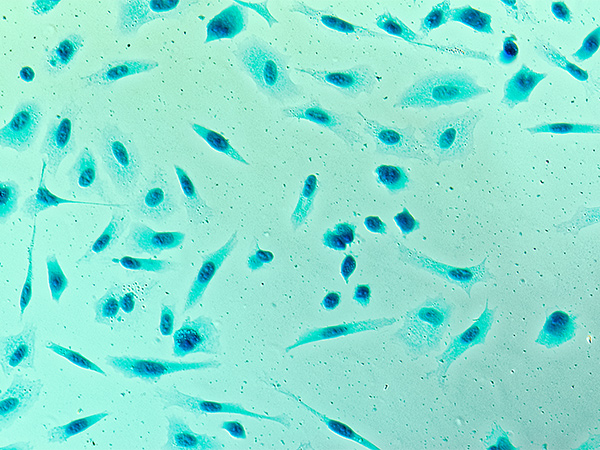Controlling Prostate Cancer
A new antihormone agent darolutamide (Nubeqa) provides men with nonmetastatic prostate cancer a third option to control the disease and prevent it from spreading.

The U.S. Food and Drug Administration (FDA) recently approved a new antihormone agent called darolutamide (Nubeqa) for treating men with nonmetastatic prostate cancer that has stopped responding to standard antihormone treatments, a clinical situation also referred to as nonmetastatic castration-resistant prostate cancer.
Prostate cancer is the second-leading cause of cancer death among U.S. men. In 2019 alone, 31,620 men are expected to die from the disease.
Most men who die from prostate cancer have metastatic disease. Thus, one goal of prostate cancer researchers is to identify new ways to increase the time before early-stage disease spreads to other parts of the body, at which point it is said to have metastasized.
Darolutamide became the third treatment approved by the FDA based on its ability to increase the time before early-stage prostate cancer metastasizes. The other two, apalutamide (Erleada) and enzalutamide (Xtandi), were approved based on this ability in February 2018 and July 2018, respectively.
At the time of diagnosis, the growth of most prostate cancers is fueled by hormones called androgens. Androgens, such as testosterone, attach in a lock-and-key fashion to androgen receptors on individual prostate cancer cells, stimulating the cancer cells to multiply and survive.
This knowledge led to the development of treatments that lower androgen levels in the body or stop androgens from attaching to androgen receptors. This approach to prostate cancer treatment is called androgen-deprivation therapy. It is an important part of care for many men with the prostate cancer.
Unfortunately, most prostate cancers that initially respond to standard approaches to androgen-deprivation therapy (bilateral orchiectomy or treatment with a gonadotropin-releasing hormone analogue agonist or antagonist) eventually begin to grow again. At this point they are said to be castration-resistant.
Even though the standard approaches to androgen-deprivation therapy reduce androgen levels in the body, they do not eliminate these hormones completely. As a result, castration-resistant prostate cancer growth is still often fueled by androgens. Therefore, researchers are developing a new generation of therapeutics that more effectively deprive prostate cancer of androgens. These therapeutics include apalutamide, darolutamide, and enzalutamide.
Darolutamide was approved for treating men with nonmetastatic castration-resistant prostate cancer based on results from the randomized, placebo-controlled, phase III ARAMIS clinical trial, which were published in The New England Journal of Medicine. The data showed that adding darolutamide to standard androgen-deprivation therapy more than doubled the time before the prostate cancer metastasized. The median time to metastasis among the 955 men with nonmetastatic castration-resistant prostate cancer who received apalutamide was 40.4 months, compared with 18.4 months among the 554 who received placebo, which is an increase of almost two years.
By keeping metastatic disease at bay, apalutamide, darolutamide, and enzalutamide are providing men like Ron Scolamiero, who was featured in the AACR Cancer Progress Report 2018, with new hope for living a longer life.
